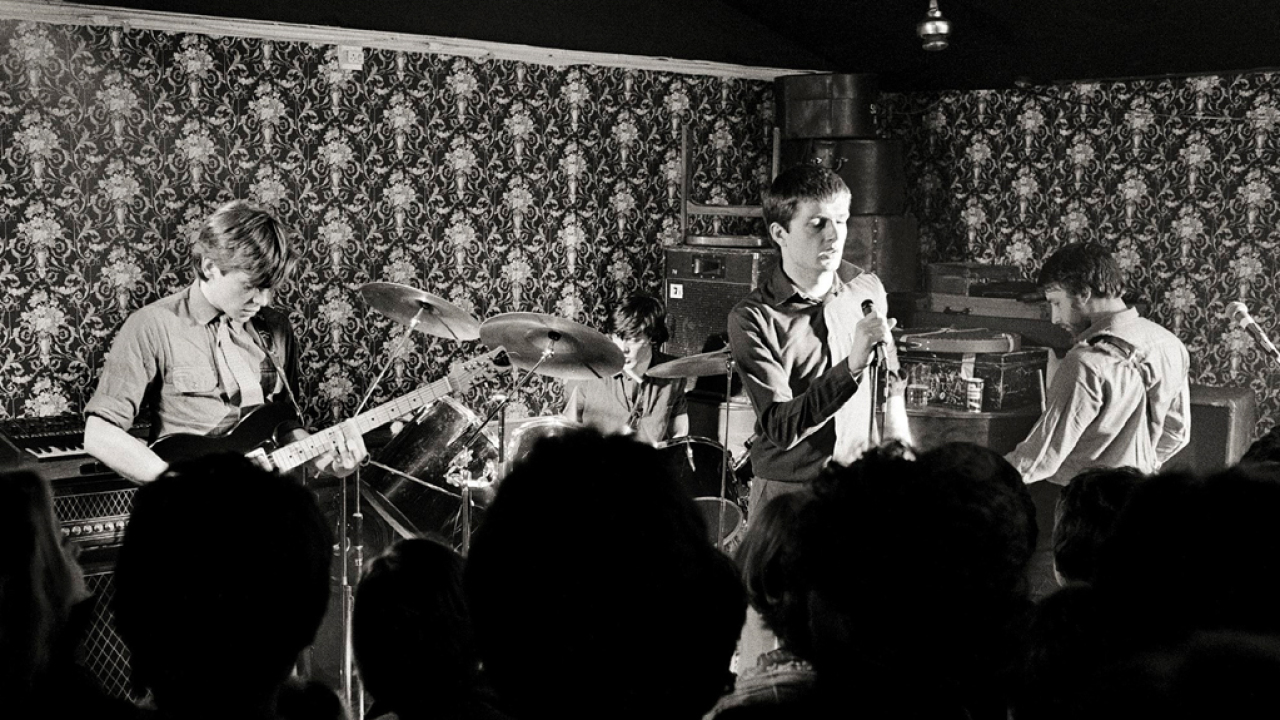Joy Division first struck a real chord with me when I was about fourteen or fifteen.
I heard them first when a DJ on Downtown Radio in Northern Ireland played Transmission, and it was the Peter Hook bass line and the propulsive beat that first drew me in. I mentioned the song to a guy at school the next day and he said: “Oh, Joy Division are great,” and lent me his copy of Unknown Pleasures.
It was always about the music, rather than Ian Curtis’s lyrics, for me initially. My brain hadn’t developed then to the point where I was identifying the existentialist tropes in Curtis’s writing. But that hectoring, stentorian voice over that scratchy guitar and those amazing bass lines was so striking. I’d started playing bass then, and I used to sit for hours in my bedroom, trying again and again to play along with Peter Hook’s bass lines.
Whenever I got older and started reading William Burroughs and Camus, Curtis’s lyrics began to take on more meaning. I first read JG Ballard because Atrocity Exhibition, on Joy Division’s second album, Closer, was named after one of his stories. In those days, before the internet, and with only three channels of TV, the weekly music press was so significant. And I’d pick up scraps of what Curtis was listening to or reading, and began to see Joy Division as an education. That kinda started my life-long obsession with them.
When Therapy? played the Monsters Of Rock festival at Donington in 1995 we opened our set with our cover of Joy Division’s Isolation. I never understood why more heavy metal bands weren’t into Joy Division. From Schubert’s _Winterreise _song cycle, which talks about someone getting lost in the frosty woods, right through to Black Sabbath’s first album there’s a European tradition of existential thought in art, and for me there’s a real connection between the first Sabbath album and Unknown Pleasures. A lot of metal bands picked up on Sabbath’s riffs, obviously, but no one really picked up on that keening despondency and utter sense of despair that Ozzy channelled into Sabbath’s songs until Joy Division came along. Both Black Sabbath and Unknown Pleasures espoused a starkness of form, and share a sense of articulate desolation. Sabbath sang about existential alienation and the feeling of being alone in the pitiless void of the universe, but still had the ‘God help me!’ pleas, whereas by the time it got to Ian Curtis he was singing hymns to a Godless world, and that was truly post-modern.
Joy Division are one of those bands I’ll be listening to for the rest of my life.
